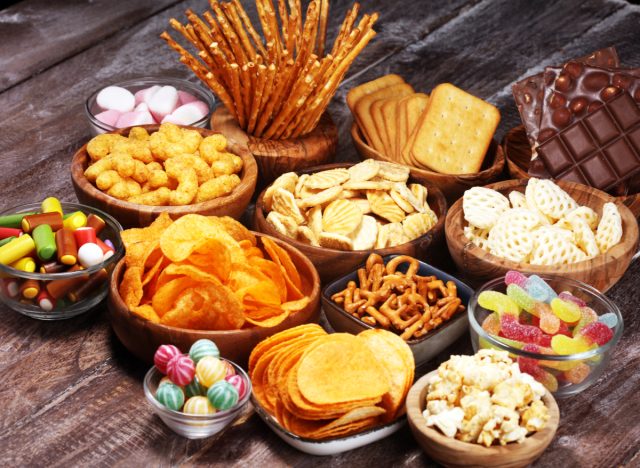A healthy, well-rounded diet is like a delicious recipe. Just like one wrong ingredient can turn a Michelin-star meal into a culinary mess, a single dietary oversight can sabotage an otherwise healthy meal plan.
What makes up a healthy diet in the first place? Generally speaking, adopting a Mediterranean approach to eating that emphasizes lots of fruits, vegetables, and whole grains, as well as minimal meats and processed foods, seems to be the way to go.
Ranked as the #1 overall diet for 2022 by U.S. Health News, following the general pillars of a Mediterranean diet will benefit your heart, waistline, and mind. Moreover, recent research showed that eating less meat and more nuts, veggies, legumes, etc. (basically a Mediterranean diet) can add up to 13 years to one's lifespan!
You may have noticed a recurring theme when it comes to healthy eating is cutting back on meat, especially red meat and processed meat. Many people looking to revamp their diets take things a step further and try vegetarianism. While there are plenty of valid reasons to contemplate going vegetarian, research from UC Davis reports most people consider going vegetarian for their health.
Unfortunately, even a vegetarian diet isn't foolproof. Eye-opening new research published in the American Journal of Clinical Nutrition has uncovered one particular type of food shown to increase mortality risk even among vegetarians following an otherwise healthy diet.
And don't miss One in Four People Contaminate Their Food When Cooking With This Ingredient, New Study Shows.
Ultra-processed is ultra-deadly

Conducted at Loma Linda University, this massive research project (including over 75,000 participants) demonstrated that eating a lot of ultra-processed foods is associated with increased mortality risk.
Importantly, the research also notes that both vegetarians and non-vegetarians eating high amounts of ultra-processed foods "faced a similar proportionate increase in mortality outcomes." In other words, eating ultra-processed foods consistently may lower your lifespan—even if you're avoiding meat.
Study authors say greater consumption of ultra-processed foods was associated with higher all-cause mortality, as well as mortality related to respiratory (chronic obstructive pulmonary disease), neurological (dementia, Parkinson's), and renal conditions.
Examples of ultra-processed foods include corn chips, apple pie, pretty much anything in the candy aisle, and packaged breads and buns.
Bad vegetarians & good non-vegetarians

Put another way, ultra-processed foods are the common mortality denominator among both vegetarians and non-vegetarians. With this in mind, researchers posit that their work illustrates it is quite possible to be a "bad vegetarian or a good non-vegetarian."
Societally, we tend to see all vegetarians as healthy eaters, but these findings indicate nutrition just isn't that simple.
"Our study addresses the question of what can make a vegetarian diet healthy or unhealthy," says study author Gary Fraser, MBChB, PhD, a professor at the Loma Linda University School of Medicine and School of Public Health, in a university release. "It seems that the proportion of ultra-processed foods in someone's diet is actually more important with respect to mortality than the proportion of animal-derived foods they eat, the exception being red meat."
The research
Right from the start, researchers set out to examine the independent mortality impact of two dietary factors: The proportion of one's diet made up of ultra-processed foods in comparison to less processed foods AND the proportion of one's diet made up of animal-based foods (meats, eggs, dairy) in comparison to plant-based foods.
This unique approach allowed the research team to examine the mortality implications of each dietary component (ultra-processed foods, meat) in a vacuum.
As touched on earlier, 77,437 participants (both male and female) took part in this study. Recruited from Seventh-day Adventist churches, each subject filled out a frequency food questionnaire featuring 200+ food items. The surveys gave researchers an idea of each person's daily diet.
Each participant also provided additional health and demographic information about themselves, such as education level achieved, tobacco habits, sex, race, marital status, exercise habits, and BMI.
Next, for an average timeframe of seven and a half years, the study authors analyzed each subject's submitted medical and demographic data in combination with their mortality data (provided via the National Death Index). A statistical model was then used to assess each variable independently, ultimately producing a cause-specific mortality analysis.
When researchers tweaked their statistical model to focus solely on ultra-processed food intake regardless of meat-eating habits or age, they discovered that people who get roughly half of their total calories from ultra-processed foods experience a 14% uptick in mortality in comparison to others only getting about 12.5% of their daily calories via ultra-processed foods.
Avoid red meat, too
What did the researchers note regarding meat and mortality? Somewhat surprisingly, no association was found between mortality and dietary intake of total animal-based foods.
That being said, when the team at LLU separated animal-based foods and meats into specific categories, one particular offender became apparent: red meat.
A statistically significant 8% jump in mortality risk was associated with moderate (roughly 1.5-ounce daily) intake of red meat in comparison to eating no red meat at all.
No one is saying eating clean all the time is easy. Every once in a while, we all need a cheat meal or unhealthy snack. You don't have to strictly avoid ultra-processed foods and red meat all the time, but don't make a habit out of eating these foods on a daily basis.
"If you're interested in living longer or to your maximal potential, you'd be wise to avoid a diet filled with ultra-processed foods and replace them with less processed or unprocessed foods," Professor Fraser concludes. "At the same time, avoid eating a lot of red meat. It's as simple as that."
https://ift.tt/slV9Oa5
food


Tidak ada komentar:
Posting Komentar